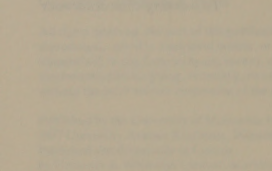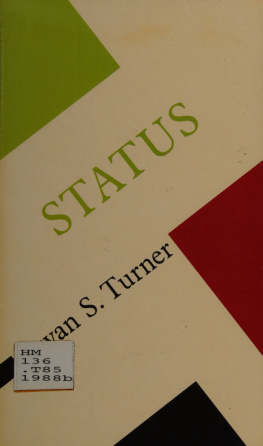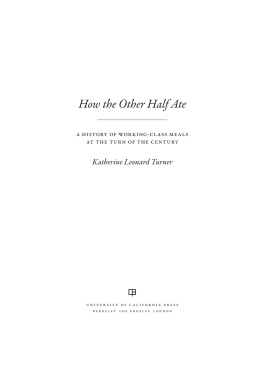Turner - Status
Here you can read online Turner - Status full text of the book (entire story) in english for free. Download pdf and epub, get meaning, cover and reviews about this ebook. City: Minneapolis, year: 1988, publisher: University of Minnesota Press, genre: Politics. Description of the work, (preface) as well as reviews are available. Best literature library LitArk.com created for fans of good reading and offers a wide selection of genres:
Romance novel
Science fiction
Adventure
Detective
Science
History
Home and family
Prose
Art
Politics
Computer
Non-fiction
Religion
Business
Children
Humor
Choose a favorite category and find really read worthwhile books. Enjoy immersion in the world of imagination, feel the emotions of the characters or learn something new for yourself, make an fascinating discovery.
Status: summary, description and annotation
We offer to read an annotation, description, summary or preface (depends on what the author of the book "Status" wrote himself). If you haven't found the necessary information about the book — write in the comments, we will try to find it.
Status — read online for free the complete book (whole text) full work
Below is the text of the book, divided by pages. System saving the place of the last page read, allows you to conveniently read the book "Status" online for free, without having to search again every time where you left off. Put a bookmark, and you can go to the page where you finished reading at any time.
Font size:
Interval:
Bookmark:

Turner, Bryan S
This book was produced in EPUB format by the Internet Archive.
The book pages were scanned and converted to EPUB format automatically. This process relies on optical character recognition, and is somewhat susceptible to errors. The book may not offer the correct reading sequence, and there may be weird characters, non-words, and incorrect guesses at structure. Some page numbers and headers or footers may remain from the scanned page. The process which identifies images might have found stray marks on the page which are not actually images from the book. The hidden page numbering which may be available to your ereader corresponds to the numbered pages in the print edition, but is not an exact match; page numbers will increment at the same rate as the corresponding print edition, but we may have started numbering before the print book's visible page numbers. The Internet Archive is working to improve the scanning process and resulting books, but in the meantime, we hope that this book will be useful to you.
The Internet Archive was founded in 1996 to build an Internet library and to promote universal access to all knowledge. The Archive's purposes include offering permanent access for researchers, historians, scholars, people with disabilities, and the general public to historical collections that exist in digital format. The Internet Archive includes texts, audio, moving images, and software as well as archived web pages, and provides specialized services for information access for the blind and other persons with disabilities.
Created with abbyy2epub (v.1.7.6)

t,

m
r ^

^ V I
H

V
Status
Concepts in Social Thought
Series Editor: Frank Parkin Magdalen College, Oxford
Democracy
Bureaucracy
Socialism
Liberalism
Ideology
Conservatism
Property
Anthony Arblaster David Beetham Bernard Crick John Gray David McLellan Robert Nisbet Alan Ryan Bryan S. Turner
Status
Concepts in Social Thought
University of Minnesota Press
Minneapolis
Copyright 1988 Bryan S. Turner
All rights reserved. No part of this publication may be reproduced, stored in a retrieval system, or transmitted, in any form or by any means, electronic, mechanical, photocopying, recording, or otherwise, without the prior written permission of the publisher.
Published by the University of Minnesota Press 2037 University Avenue Southeast, Minneapolis MN 55414 Published simultaneously in Canada by Fitzhenry & Whiteside Limited, Markham.
Printed in Great Britain
Library of Congress Cataloging-in-Publication Number
88-27717
ISBN 0-8166-1722-8 (hardcover)
ISBN 0-8166-1723-6 (pbk.)
The University of Minnesota is an equal-opportunity educator and employer.
To working-class academics
I
t




f^r- .

V
. /
- -j - "4*..;
M:
. C ^-,. ! I
. * - 'J! !-.
?^V
Lt
'. i
f
'i>Vl^.r /
-V
i.

Preface ix
1 The Controversy over Status: Marx and Weber 1
2 From Status to Contract: Historical Change and Social
Stratification 17
3 Status Politics in Contemporary Society: Citizenship and
Inequality 42
4 Mass Culture, Distinction and Lifestyle 65
Bibliography 79
Index 89
k * ^
r k'' f
-> I.y*
I i
<
# *-if ^ r *
*%!!?
' ! k l ,.V >'Wft k*"^ V,
. : . t
* * tf 'HA'
^ '
tMi
LJ
V^ .|if/;rt i
?
,r
' - .:## I <0it< '
*
> ' .-v

%
e
>
T
I
.
,r<
This study of status was written during a period of study at the University of Bielefeld (West Germany) where I was a guest professor in the Sociology Faculty from 1987 to 1988. This period of research in West Germany was made possible by the Alexander von Humboldt Foundation, which was generous in its support of my research activity. I am particularly grateful to my hosts in the Sociology Faculty, especially Georg Stauth, Claus Offe and Johannes Berger. The ideas represented in this study however derive from a much longer period of academic research and teaching in a variety of universities, namely Aberdeen, Lancaster and Flinders. Aspects of this study are also derived from collaborative scholarship with Nicholas Abercrombie and Stephen Hill. Many of the historical and analytical features of this study result from debates with my former colleague Robert Holton. A version of chapter two was originally presented at the Max Weber Colloquium at William Paterson College, New Jersey where Professor Ronald Glassman acted as host and organizer. A version of chapter three was originally given as a seminar at the State University of Utrecht; I am grateful to Professor David Ingleby and Dr Chris Baks for their critical commentary. I would also like to thank Mike Featherstone of Teesside Polytechnic who, as Editor of Theory, Culture and Society, first forced me to confront and come to terms with the theories of Pierre Bourdieu, whose analysis of distinction has played an important part in the development of this book. Some features of the final chapter were explored at the Pierre Bourdieu conference at Vlotho, Westfalen in 1987. My new colleagues in the Faculty of Social Science at the State University of Utrecht also provided support for an interdisciplinary approach to the analysis of social stratification. I am particularly grateful to Dr Lieteke van
X
Status
Vucht Tijssen for her help during my transition to Utrecht and for her boundless intellectual enthusiasm. I would also like to thank Professor Roland Robertson, University of Pittsburgh, who gently but persistently persuaded me to focus on culture as a crucial feature of sociological understanding. Frank Parkin offered insightful and sharp criticism of the original proposal which proved invaluable in reorganizing this inquiry. Finally I would like to thank my wife (another working-class academic) for her incalculable intellectual and emotional contribution to my work.
Bryan S. Turner
Any student starting a course on sociology will quickly encounter the concept of status, alongside many applications of the notion such as status inconsistency, status crystallization, status group and status panic. The student will also discover that a great deal of controversy surrounds the notion of status stratification, that the very concept of status is vague, and furthermore that in the view of some sociologists the concept of status has little or no real analytical value. The situation is further confounded by the fact that there is hardly any textbook available in contemporary sociology on the notion of status and status hierarchies. This book has been written with the intention of clarifying the notion of status, demonstrating the historical and analytical importance of the concept and restoring the concept of status to its proper place in sociology as a major perspective on the more general issues of social stratification.
Next pageFont size:
Interval:
Bookmark:
Similar books «Status»
Look at similar books to Status. We have selected literature similar in name and meaning in the hope of providing readers with more options to find new, interesting, not yet read works.
Discussion, reviews of the book Status and just readers' own opinions. Leave your comments, write what you think about the work, its meaning or the main characters. Specify what exactly you liked and what you didn't like, and why you think so.

















